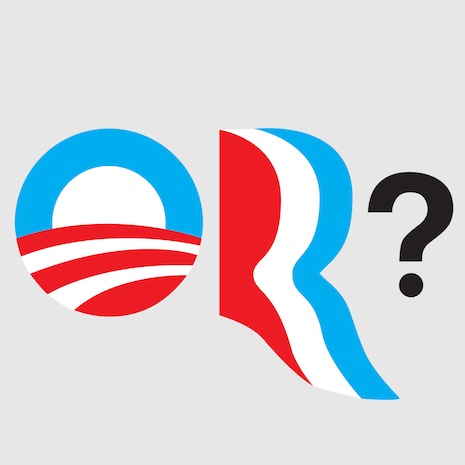
My son, a freshman in college, and I were on the phone last night discussing our impressions of the latest town hall debate between President Barack Obama and former governor Mitt Romney. Given the particularly rancorous tone the debate had, a mirrored reflection of the actual campaign, I commented that I found it hard to believe that there were enough undecided voters in the country to fill the audience, let alone that many in Nassau County; but there they were.
Rabid, robotic sycophants in each party leave no room for the truly undecided voter to express their uncertainty with a candidate lest they be subjected to immediate internment in the opposing camp, suddenly responsible for each plank in a platform in which they are ill-prepared and unwilling to defend. Are these undecided voters genuinely inquisitive, searching for positions on a myriad of issues or are they the dull, unread and oblivious? For the sake of the future of the United States, I hope it is the former while concerned it is the later.
The polarization of politics, the fracturing of consensus and absence of debate, the removal of concession as a tool toward progress has paralyzed politics. A shattered media, where any myopic obsession with one particular issue is rewarded with its own cable channel and a thousand militant websites, encourages the electorate to choose a candidate for their position on a single issue and while ignoring the candidate’s position on every other issue as “somebody else’s problem.” You’re concerned about the economy? The environment be damned. You’re concerned about healthcare? Jobs be damned. And so on…
Neither candidate has successfully escaped this reality. In a perfect world, Mitt Romney would be able to express the desire for small business (“the economic engine of the country”) to thrive and grow. He would be able to encourage the celebration of the individual based on their genius and initiative (not their celebrity quotient), rewarded with the fruits of a capitalistic marketplace or starved by the same; where wealth is seen, not as the unconscionable greed plundered by the mindless “looters” of Ayn Rand’s Atlas Shrugged, but celebrated as the moral destination of individual gain. In this perfect world there would be more Hank Rearden’s and Dagny Taggart’s and fewer Wesley Mouch’s and Jim Taggarts. Unfortunately, this industrial utopia ignores the choices people make. Atlas Shrugged spends an exhaustive number of pages explaining that the choice a mother makes to give the last piece of bread to her child is not a sacrifice and not given out of pity, but the rational choice of a rational mind. In the real world, choices like this are made by individuals on a daily basis with no expectation of societal support in return. Honor is held internally by these individuals, as they navigate life’s course, carved by the choices they have made and determined to persevere. There are no children in Atlas Shrugged and no characters ravaged by illness, excepting, of course, that a conscious refusal to think for one’s self is terminal. In reality, there are those whom Fortune has betrayed, felled by disease or events beyond their control for whom that proverbial “governmental safety net” should be axiomatic.
Conversely, President Obama has not been able to effectively convey a perfect world where government involvement in the minds and pocketbooks of citizens is not for the benefit of the lazy takers and looters, but where an “audacity of hope” lifts all boats; where society’s infrastructure is measured in the tons of steel and yards of cement in our roads and bridges and not in the number of governmental agencies handing out food stamps and welfare checks to the unworthy. He has not been able to sell his opponents on a middle class worthy of the platitudes bestowed upon it by Democrats as the hardworking backbone of America, and not the resource-sponging Pablum vilified by Republicans. To assume that every citizen is doing their best and ignoring society’s leeches does nothing but invite deserved criticism. No amount of rhetoric can make up for the picture of the able-bodied young man who has fathered countless children without concern for their future, waiting in line for a government check rather than searching for work, laughing in full belief that the government “owes” him. Nor has the president escaped the portrait, painted in dazzlingly surreal colors by the “Confiscation Day” fear-mongering NRA, of him as a soft, yellow, liberal hoplophobe, as opposed to a father and leader legitimately questioning why regular citizens need to own AR-15’s with 100 round drums.
Each side sees only the idealized version of themselves in the mirror and ignores the Dorian Gray painting in the corner while only seeing the Dorian Gray painting of their opponent.
My son suggested that the town hall format, while colloquial and folksy did little to further either candidate’s command of the undecided. He, himself an accomplished high school debater, suggested that there be two debates scheduled for future presidential campaigns. Each candidate selects the most partisan member of the media they can find, crafts pointed questions and directs them at their opponent, knowing that their opponent will have the same opportunity in the next round. In fact, why not remove the commentator altogether? This would eliminate the bias claims leveled at every commentator by partisan hacks and conspiracy theorists. Simply have one debate where the Republican candidate asks questions directly to the Democratic candidate and a second debate where the Democratic candidate asks questions directly to the Republican candidate. These debates should be limited to six hours in length and broadcast on every cable and radio station. Proof of viewership (of both debates) should be required of every voter on election night, thus ensuring that an informed electorate is a prepared electorate, undecided no more.
